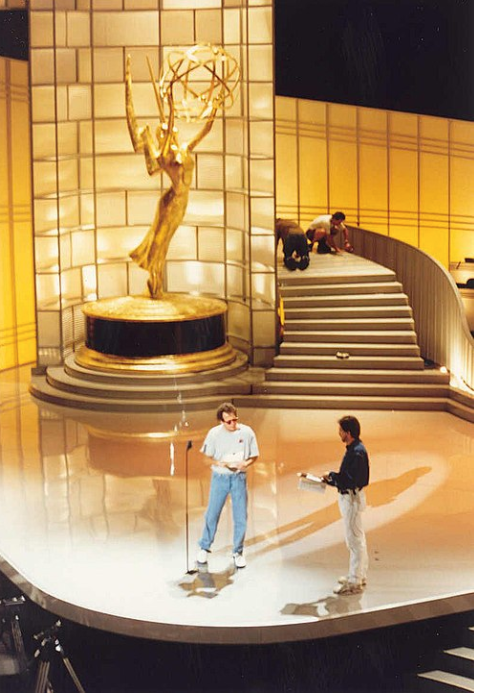From “The Slap Heard Around the World” to jokes on a celebrity’s antisemitism, award shows have turned from a moment to celebrate celebrity talent to a complete mockery of them. Is this moral? When are these jokes taken too far? Where should the line be drawn?
Award show season has begun and so far there have already been countless offensive jokes directed toward the celebrities invited.
Golden Globes host Jo Koy made a joke at the event comparing box office hit “Oppenheimer” to another summer 2023 hit, “Barbie” stating, “Oppenheimer is based on a 721 page, Pulitzer Prize-winning book on the Manhattan Project. Barbie is on a plastic doll with big boobies.”
Videos of the joke immediately blew up, causing Koy to receive severe backlash and criticism. Additionally, many called out the comedian for being out of line and making unfunny sexist jokes at the expense of the “Barbie” cast, who were simply there to represent their movie and not to be dissed.
Junior Odelia Ayika agrees with the criticism Koy received. “I feel like sometimes it’s easy to disguise offensive behavior and beliefs as jokes because if they don’t they’ll get canceled,” Ayika said.
Many social media users also pointed out the irony behind the comment, as one of the main plots of “Barbie” discusses how women are often seen for surface based qualities and rarely shown with any depth and meaning.
But this phenomenon isn’t new. At the 2010 Golden Globes, comedian Ricky Gervais joked about actor Mel Gibson’s alcoholism, stating, “I like a drink as much as the next man, and the next man is Mel Gibson.” He continued with throwing jabs at the actor the next year, when he jokingly accused Gibson of antisemitism while introducing Jewish actress Scarlett Johanson. “Our first presenter is beautiful, talented, and Jewish apparently… Mel Gibson told me that, he’s obsessed,” Gervais said.
These personal jokes had clearly affected Gibson as he had a scarring past with alcohol and his antisemitism caused major backlash in his career, which led him to leave the shows offended and disrespected.
But junior Tanya Rastogi argues these offensive jokes should not be restricted. “People have free speech; they can say whatever they want, but it’s simply immoral to point out clearly sensitive subjects,” she said.
While everyone has free speech and comedians are at award shows to make the audience laugh, celebrities come to award shows to be recognized for their hard work and talent, and it’s unfair to criticize them so deeply with personal matters in a time where they are supposed to be appreciated.
Additionally, celebrities are already put on a pedestal and criticized daily, making it feel incredibly immoral to continue the practice on special nights, regardless of the star and what they stand for.
There are many instances where award show jokes are humorous and lighthearted. Comedian and actor Billy Crystal pointed out the irony of the rich receiving more gold at award shows in his 2012 monologue at the Academy Awards, saying, “So tonight, enjoy yourselves. Because nothing can take the sting out of the world’s economic problems like watching millionaires collecting gold statues.”
While this joke still took a dig at its guests, it was harmless and poked fun at the whole group rather than specific individuals and while humor is subjective, guests and viewers seem to appreciate and be much more comfortable with this joke than others.
So, the big question is: where should the line be drawn between an innocent, yet still funny joke compared to a violation?
Junior Odelia Ayika believes she has the answer as she explains, “It all has to do with how personal the joke is. If it is genuinely funny and doesn’t directly target someone or a certain group, then it’s fine.”









